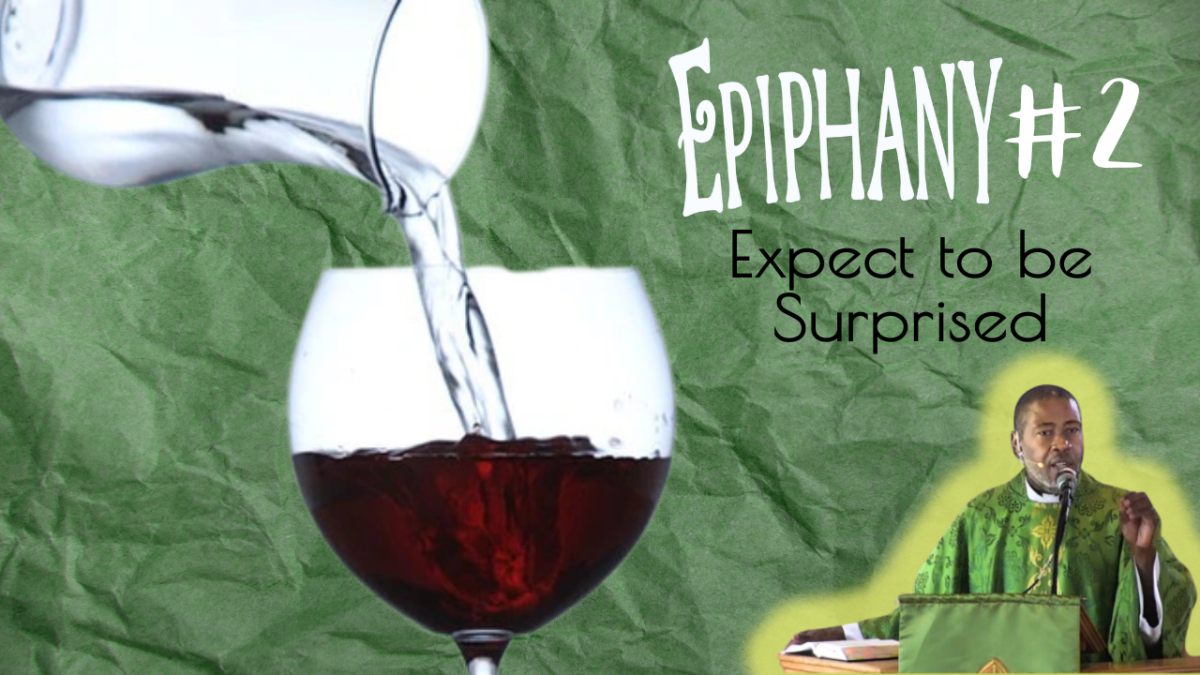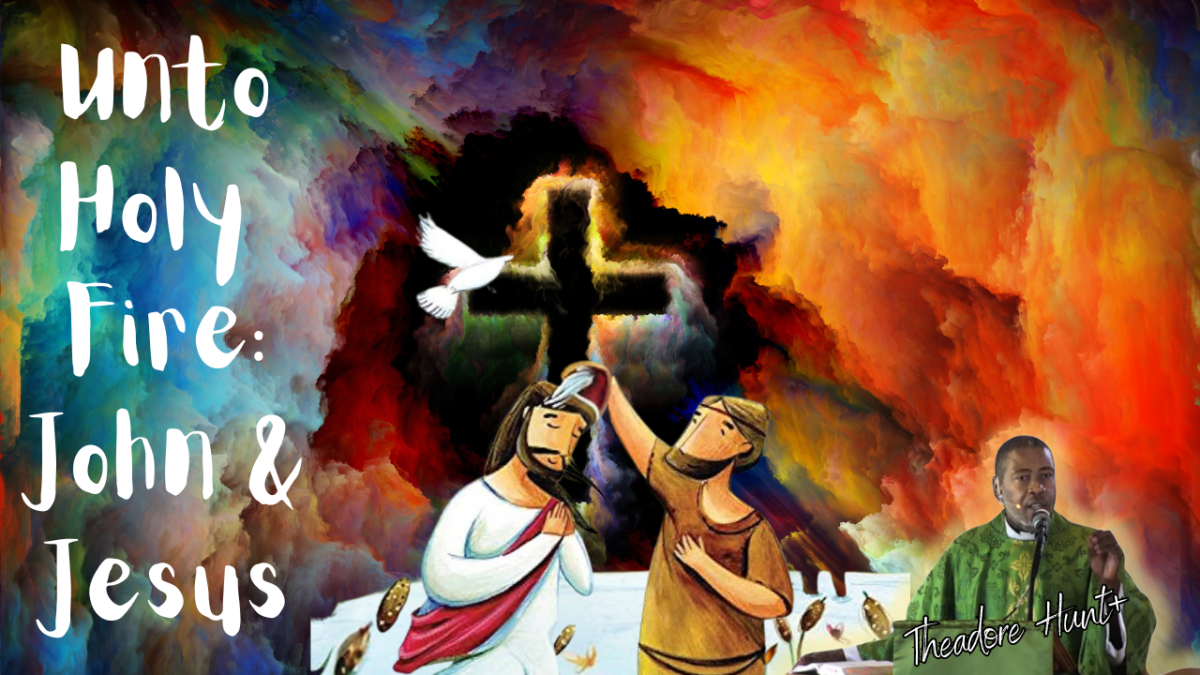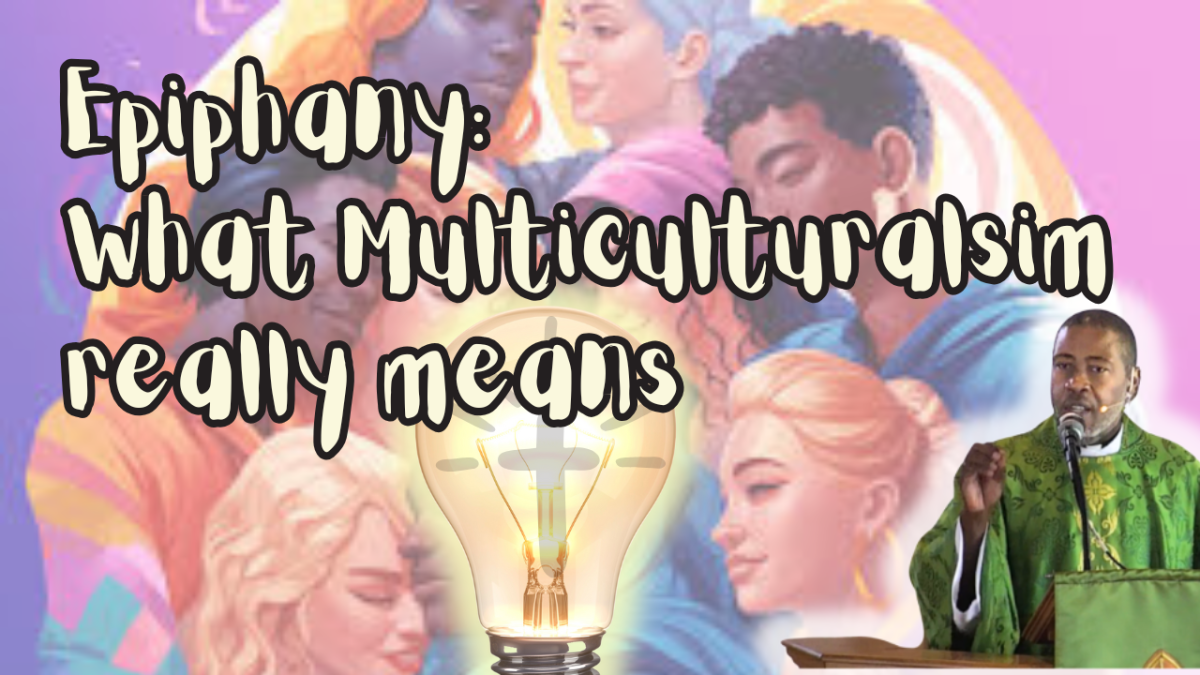Archive for January, 2025
Posted on: January 26th, 2025 by St. Stephens Downsview
 Some words from the first letter of Paul to the Corinthians chapter 12, verses 12 to 13, have resonated deeply with me. They speak to the idea that, just as the body is one and has many members, all the members, though many, are one body. So it is with Christ, for in one spirit, we were all baptized into one body.
Some words from the first letter of Paul to the Corinthians chapter 12, verses 12 to 13, have resonated deeply with me. They speak to the idea that, just as the body is one and has many members, all the members, though many, are one body. So it is with Christ, for in one spirit, we were all baptized into one body.
The Swearing-In of a New Leader
Recently, we witnessed a significant moment in history as the United States swore in its 47th president. The oath of office requires the president to preserve, protect, and defend the Constitution of the United States. This ritual emphasizes the role of foundational documents in guiding a nation’s character and unity.
Reflecting on Our Foundations
Many nations are guided by constitutional documents, which are fundamental principles guiding governance. These documents reflect the vision and values set by their authors and are measured against time to ensure alignment with their founding intent. It makes me wonder how today’s America, and indeed other nations, measure up against these founding visions.
A Journey Back in Time
This reflection brings to mind Ezra’s discovery of the book of laws as recounted in the book of Nehemiah. It was a momentous and emotional period for Ezra and the people of Israel, reminiscent of the feeling of rediscovery when the law was returned to their possession after Babylonian captivity.
Listening to Scripture with New Ears
In our gospel reading, it is Jesus, filled with the power of the Spirit, who reads from the scriptures and explains their fulfillment. He brings good news, promises release to prisoners, and lets the oppressed go free, announcing the acceptable year of the Lord. Despite the miracles and teachings, Jesus was unreceived by his own people, a rejection within God’s plan for salvation.
Unity Through the Spirit
Paul’s letter to the Corinthians emphasizes the grace bestowed upon us through Jesus’s sacrifice. Growing up, these words introduced the greeting of peace, a reminder that we are baptized into one body and should pursue peace to build common life. Unity is vital, not just as a concept but a divine gift given to us from God.
Celebrating Our Differences
As a community, we are drawn from diverse backgrounds, cultures, and experiences, but in Christ Jesus, we form one body. Every member matter, contributing to the whole. Yet, the same diversity can also breed divisions, based on outward characteristics.
Facing Divisions with Grace and Mercy
We must address these divisions head-on, for unity requires action. God has given us the grace to forgive and reconcile, to cherish unity gifted in Christ. Let us strive towards unity, guided by the Holy Spirit, seeking peace and building a communal life.
Witnessing to the World
Our unity reflects the divine justice marked by mercy, calling us to follow suit in our relationships. By embracing this shared unity, living out God’s presence and love, we engage in a testimony of faith to the world. Let us pursue peace, strengthened by the grace bestowed on us, embodying the unity that transcends human-made constitutions.
A Call to Faithful Obedience
In obedience to God, we step forward, embracing our identity in him, with a commitment to pursuing peace and nurturing a shared life. Amen.
Posted on: January 19th, 2025 by St. Stephens Downsview
Expect the Unexpected: Embracing the Miracle of Faith
 It is a joy to see those who ventured out in the cold this morning and a warm welcome to everyone joining us via live stream for today’s service. Let me share some inspiring words from the Gospel of John, Chapter 2. In this passage, we learn about a wedding in Cana of Galilee where Jesus performs His first miracle.
It is a joy to see those who ventured out in the cold this morning and a warm welcome to everyone joining us via live stream for today’s service. Let me share some inspiring words from the Gospel of John, Chapter 2. In this passage, we learn about a wedding in Cana of Galilee where Jesus performs His first miracle.
At this wedding, the wine runs out, which could have ended the celebration prematurely. But with Mary’s faith and Jesus’ presence, a miracle happens: He turns water into wine. This was not just any wine, but the best wine. This story teaches us about expecting the unexpected when Jesus is involved.
The Challenge of Faith Today
In today’s world, many people find it easier to participate in church activities from a distance due to technology. However, this distance can lead to a sense of isolation. Our faith is meant to be lived out in community, where we meet regularly for worship and support each other.
Facing Modern Challenges
The challenges of secularism and technology in our society may lead some to see faith as something optional. But God has shown us, time and again, that He provides for His church. Through spiritual gifts and the Holy Spirit, God equips us to face all challenges.
Anticipating God’s Goodness
Just like Mary expected Jesus to work a miracle at the wedding, we can also expect God’s goodness in our lives. Whether through trials or moments of doubt, we can trust that God is turning the ordinary into something extraordinary.
Following Jesus’ Lead
Our task is to trust in God’s plans and do what He tells us. By following Jesus’ teachings, we can be sure of a future that is filled with God’s blessings and love. As Paul reminds us in his letter to the Galatians, we should never tire of doing good. There will be a time for reaping the harvest if we do not give up.
Conclusion
This is not just the end but the beginning of a greater journey with God. Let us work for the good of all and especially for our family of faith. As we do this, remember that God is with us, transforming our lives. The best is yet to come!
Friends, let God’s love inspire and guide us as we continue this beautiful journey together. Amen.
Posted on: January 12th, 2025 by St. Stephens Downsview
 Welcome! Today, as we commemorate the baptism of the Lord, I extend a warm welcome to all, especially to our friends joining via livestream.
Welcome! Today, as we commemorate the baptism of the Lord, I extend a warm welcome to all, especially to our friends joining via livestream.
The Expectation of Something Greater
In Luke’s gospel, we hear the words of John the Baptist as he addresses the people filled with expectation. He clarifies that while he baptizes with water, one more powerful is coming, who will baptize with the Holy Spirit and fire. John’s proclamation not only invited the people to repent but to prepare their hearts and minds for the arrival of Jesus, the decisive figure in the defeat of spiritual enemies, the one whose birth we celebrated just over two weeks ago.
The Transformative Call to Repentance
Masses flocked to John, including tax collectors and soldiers, inquiring about what was required of them. John guided them towards a change of heart, emphasizing actions of repentance: sharing with others, fairness in dealing, and treating others justly. This transformative move of God provoked great expectation among the people, who mistakenly thought John might be the Messiah. But John set the record straight, pointing to Jesus as the one who baptizes with the Holy Spirit, who purifies our lives like fire purifies metal.
The Baptism of Jesus and the Presence of the Trinity
When Jesus approached to be baptized, it was a profound affirmation of John’s ministry. Despite appearing at times unconventional, John’s role was significant, as evidenced by Jesus’ participation. In this narrative, we witness all three persons of the Trinity: the Son being baptized, the Holy Spirit descending like a dove, and the Father affirming from heaven.
The Role of the Holy Spirit in Our Lives
The good news is that Jesus has promised and bestowed upon us the same Holy Spirit. The Holy Spirit supports, strengthens, and transforms us, making us children of God and enabling us to live in faith and obedience. Our transformation, known as sanctification, begins instantly but unfolds throughout our lives, shaping us into who God calls us to be.
Misunderstandings about the Holy Spirit
There are misconceptions among some Christians about the manifestation of the Holy Spirit being solely through speaking in tongues. I recall visiting a church where spiritual activities were seemingly controlled by the ringing of a bell, which felt contrived. Instead, being baptized in the Holy Spirit involves living in accordance with the Spirit—changing our lives and setting our minds on spiritual things.
Living a Spirit-Led Life
Living by the Spirit means allowing it to dwell within us, correcting us, and guiding us away from sin. We are invited to serve God and our neighbors selflessly, detaching from reliance on earthly powers and resting in God’s strength. Our journey is one of faith, patience, and transformation, empowered by the Spirit.
Embracing Weakness, Finding Strength
Recognizing our weaknesses allows us to experience the Holy Spirit’s strength. God’s grace is sufficient, and His power perfects in our weakness. When our will falters, the Spirit encourages us, whispering the way forward and stirring our hearts towards spiritual fervor and continued faithfulness.
A Call to Faithfulness
Wherever you are on your Christian journey, if you find yourself drifting, consider returning to faithful living. If life challenges you, remember you are held by the one who never lets go. Offer your struggles to the one who baptizes and cleanses with the Spirit, inviting transformation and purity into your life.
Posted on: January 5th, 2025 by St. Stephens Downsview
 Friends, today I invite you to reflect on the profound lessons epiphany offers us, especially in the context of multiculturalism. Before we dive in, please ensure that any distractions, like cell phones, are set aside as we engage with these thoughts. Let us consider the words from the letter of Paul to the Ephesians, chapter three, verses five through six. Here, Paul speaks of a mystery once hidden, now revealed to his holy apostles and prophets by the Spirit. This mystery is that the gentiles have become fellow heirs, members of the same body, and sharers in the promise in Christ Jesus through the gospel.
Friends, today I invite you to reflect on the profound lessons epiphany offers us, especially in the context of multiculturalism. Before we dive in, please ensure that any distractions, like cell phones, are set aside as we engage with these thoughts. Let us consider the words from the letter of Paul to the Ephesians, chapter three, verses five through six. Here, Paul speaks of a mystery once hidden, now revealed to his holy apostles and prophets by the Spirit. This mystery is that the gentiles have become fellow heirs, members of the same body, and sharers in the promise in Christ Jesus through the gospel.
The Experiment of Multiculturalism
Our modern western world, including Canada, has embarked on an experiment of multiculturalism. This experiment aims to foster a society where various cultures coexist alongside a more dominant culture. While this ideal promotes unity and diversity, it remains flawed. A primary flaw lies in the coexistence without authentic dialogue and interaction between different cultures, reducing real unity to mere neighborly tolerance. As witnessed in Canada, cultural enclaves often respond more to events in their countries of origin than align with Canadian values, indicating a disconnect.
The Issue of Sin and Its Consequences
Another significant flaw in this multicultural endeavor is the assumption that humanity can determine what brings well-being without addressing the problem of sin. The pursuit of unity is noble, but it can fall short if it overlooks the fundamental human condition of sin. How might we reconsider this yearning for oneness in light of the epiphany we commemorate today?
The Revelation of Christ’s Promises
Epiphany reminds us that the promises of Christ are not merely for intellectual consideration but are deeply rooted in human history and demand a heartfelt response. Jesus’s life claims every life, urging us to answer the pivotal question: Who do you say Christ is? This answer determines our response through the ages. The gospel’s universal scope declares Jesus as the light of the world — a beacon for all, beyond specific religious or cultural identities.
The Symbolism of the Wise Men
The wise men’s journey during Herod’s reign, as they followed a star to honor the newborn king of the Jews, symbolizes the inclusion of the gentiles—of you and me. Their homage to Christ challenges us to acknowledge that we, once considered far off, are drawn near by His light. This narrative urges us to recognize the mystery now revealed in Christ: the unity of all believers, transcending cultural and ethnic boundaries.
Subverting Cultural Norms
Historically, human cultures have often shaped their conception of divinity in ways that privilege their own heritage. This was evident among the Jewish people of Jesus’s time. Yet Christ subverts these cultural limitations, affirming that God’s call transcends any one culture or ethnicity. Jesus represents the eternal Son of God, undermining his own Jewish cultural claims and giving us all equal standing before God.
A Personal Claim on Our Lives
In Christ, God comes to us, fulfilling promises that Israel would be a light to the nations. Jesus’s life commands us to recognize its importance across all human experiences. Recognizing this truth is a transformative epiphany, altering our perception and engagement with the world around us. This transformation is reflected in how we see ourselves, fundamentally shifting our interactions and guiding us towards a deeper understanding of what it means to truly follow Christ.
Unpacking the Light of Christ
Like the wise men, we spend our lives unpacking the profound significance of the light of Christ’s life. The gifts they offered were just the beginning; our journey involves continually embracing the transformative impact of this light. To be drawn to Christ’s light is to be sanctified, defining our culture and heritage not as prisons but as gifts that yield central place to Christ.
The Twofold Nature of Epiphany
Ultimately, the message of epiphany is universal. It reminds us that God’s manifestation has an undeniable claim on all human lives. This claim is both a personal challenge and a gracious promise — one that calls us to recognize Christ as central to our existence and our response to the world around us. As we acknowledge and accept this claim, we find freedom and unity in becoming fellow heirs and members of the body of Christ. Amen.
 Some words from the first letter of Paul to the Corinthians chapter 12, verses 12 to 13, have resonated deeply with me. They speak to the idea that, just as the body is one and has many members, all the members, though many, are one body. So it is with Christ, for in one spirit, we were all baptized into one body.
Some words from the first letter of Paul to the Corinthians chapter 12, verses 12 to 13, have resonated deeply with me. They speak to the idea that, just as the body is one and has many members, all the members, though many, are one body. So it is with Christ, for in one spirit, we were all baptized into one body.


